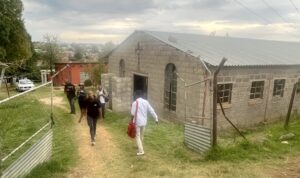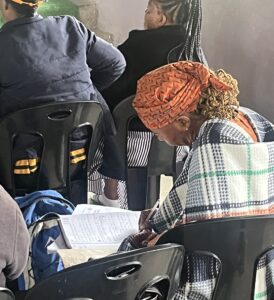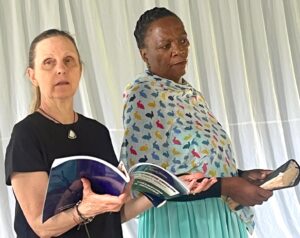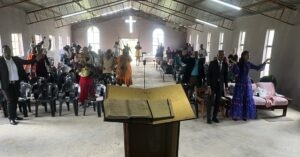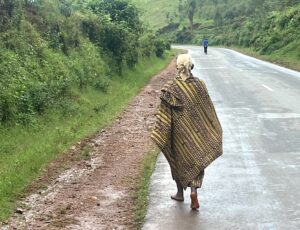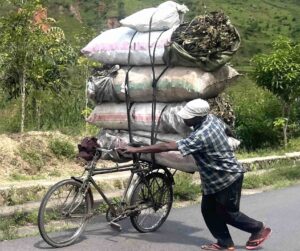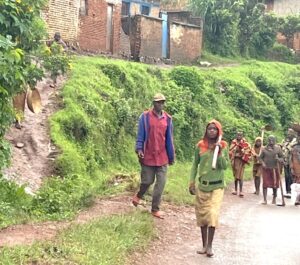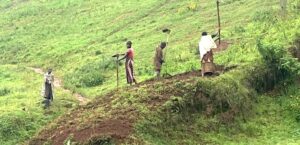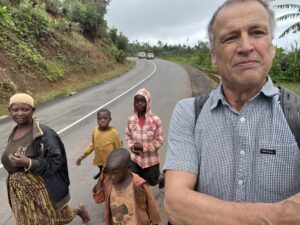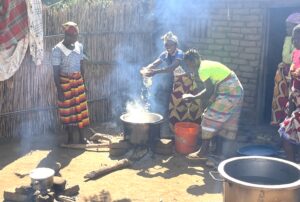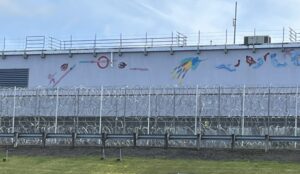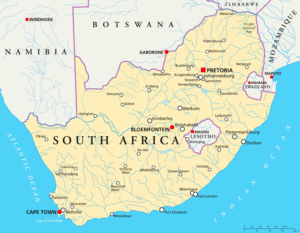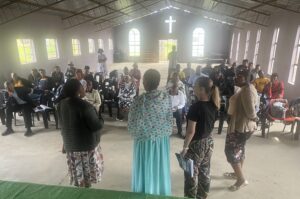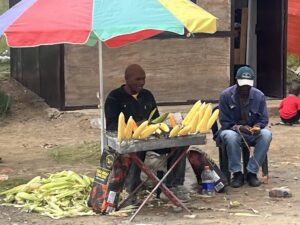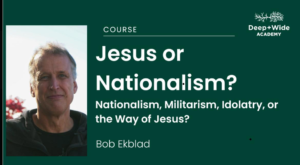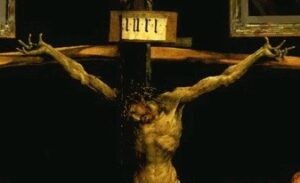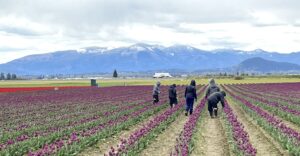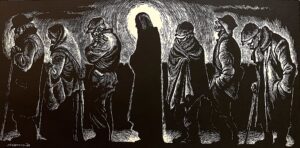Psalm 94 is an example of a kind of prophetic intercessory prayer that is highly relevant to our current context in the USA (and elsewhere around the world), where certain rich and powerful people and institutions appear unstoppable. The Psalmist directly addresses the Lord (YHWH) as “God of vengeance,” with the imperative: “Shine forth!”
Throughout my life I’ve sought to disassociate vengeance from God and resisted my own desires for vengeance. However, if God’s vengeance involves stopping forces of impunity (defined as “exemption from punishment or freedom from the injurious consequences of an action”) and destruction that seem all-powerful, or letting natural consequences of evil overwhelm and halt perpetrators (which it does), then we should join with the Psalmist’s cry!
Whoever is praying in this Psalm is feeling the urgency for God to expose lies and crimes, bringing injustices into the light. The desperate call, “rise up, O judge of the earth!” shows the Psalmist’s sense that God’s judgment is urgently need to right wrongs. The Psalmist asks God act to specifically “render recompense to the proud (94:2).
“How long Oh Lord? How long will the wicked exult?” (“be allowed to gloat” NLT), cries the Psalmist, echoing Habakkuk 1:2. Note that “the wicked” (rasha in Hebrew) is a synonym for the rich and powerful oppressors (Is 5:23; 58:6; Jer 12:1), unjust rulers (Is 11:4; 14:5; 26:10; Hos 10:13) and arrogant (Is 13:11).
How long Oh Lord will the US President elevate himself, and arrogantly berate anyone who resists him? How long will elected lawmakers vote into law policies that reward the rich and punish the poor? How long will billionaire tech and other business leaders shamelessly buy influence and curry favor through overt demonstrations of loyalty or silence? How long will the current American administration scapegoat the most vulnerable and their advocates here and abroad? How long, Oh Lord will White evangelicals (and others) support the current Administration, endorsing nationalism, discrimination, violence and oppression here, in Israel’s treatment of Palestinians in Gaza and the West Bank and beyond?
These past few days Immigration and Customs Enforcement agents are making arrests in Los Angeles, here in our own community, and across the USA– deporting hard-working people, separating them from their children, spouses and communities– increasingly with no due process.
Protesters are being arrested, intimidated by threats and tactics like deploying tear gas, less-lethal ammunition like rubber bullets and pepper balls, and flashbang grenades. Displays of brute force are underway through the deploying of National Guard troops and US Marines.
The most powerful leaders are inciting violence through incendiary rhetoric full of lies.
“They pour forth words, they speak arrogantly; All who do wickedness vaunt themselves. They crush your people, O Lord, and afflict your heritage. They kill the widow and the resident foreigner, and they murder the fatherless.” (94:4-6).
The Psalmist presents the powerful as seeing themselves above God.
“The Lord isn’t looking,” they say, “and besides, the God of Israel doesn’t care.”
With prophetic honesty the Psalmist holds the common citizen accountable to themselves look and care (and not God).
A call to pay attention and be open to correction
“Pay heed, you senseless among the people; and when will you understand, stupid ones? (Ps 94:8).
Paying attention requires actively opening our eyes and ears—keeping ourselves informed, and not by partisan sources loyal to the rich and powerful. The Psalmist gives no excuse for ignorance, placing blame squarely on those going along with the status quo (and not on God).
Yet the Psalmist appears to honestly question his own fears that God is not aware and responsive. The writer pushes away predatory cynicism and unbelief, replacing them with a strong affirmation of faith that God is fully active on the side of truth and justice.
“Does the one who makes the human ear not hear? Does the one who forms the human eye not see? Does the one who disciplines the nations not punish? He is the one who imparts knowledge to human beings! The Lord knows that peoples’ thoughts are morally bankrupt” (Ps 94:9-11 NET).
Then in the next verses the Psalmist reflects a self-critical attitude that I find personally challenging. When I hear arrogant words from the US President and others in his Administration, and see heartless policies that uproot lives, separate families, and send people away to prison colonies, I feel outrage– which can spill into my own self-righteous disdain for people I can easily demonize. I can call those who support policies I abhor senseless and stupid.
The Psalmist calls me to attention, reminding me of what God blesses.
“Blessed is the person whom you chasten (instruct), O Lord, and whom you teach out of your law” (Ps 94:13).
The term chasten (Hebrew yāsar) can mean discipline, correct, and instruct. Blessed is the person who is open to being taught by God—to being a disciple. May we notice this, even in the night!
“I will bless the Lord who has counseled me; Indeed, my mind instructs me in the night” (Ps 16:7).
Those who choose to follow Jesus become his disciples, apprentices, learners—open to correction and new direction.
“Those whom I love, I reprove and discipline (Greek paideuō, instruct),” says Jesus. “Therefore, be zealous and repent” (Rev. 3:19; see Heb 12:6).
“Blessed is the person who the Lord teaches out of his law (Torah/Scripture)!” Now is the time go deeper in our study of Scripture as we seek to discern the times in the light of the God’s revelation.
“That you may grant him relief from the days of adversity, until a pit is dug for the wicked.”
Relief during these times of growing adversity comes when we ourselves are open to being corrected, taught and led by God’s Spirit. Until the time of God’s recompense finally comes, which it will, and “a pit is dug for the wicked” (that is the rich and powerful—the best contemporary equivalent).
The Psalmist assures himself and all of us of God’s abiding presence. “For the Lord will not abandon his people, nor will he forsake his inheritance. For judgment will again be righteous, and all the upright in heart will follow it” (Ps 94:14-15).
From passivity to active resistance (with God’s help)
Yet the Psalmist again addresses the larger community to step out of passivity and muted indifference and into action, asking: “Who will stand up for me against evildoers? Who will take his stand for me against those who do wickedness?”
Will you stand up against the Lawless One, who Paul warned us about in 2 Thessalonians 2, who believers must not be deceived by?
“Let no one in any way deceive you, for it will not come unless the apostasy comes first, and the man of lawlessness is revealed, the son of destruction, who opposes and exalts himself above every so-called god or object of worship, so that he takes his seat in the temple of God, displaying himself as being God” (2 Thes 2:3-4).
If we are each “temples of the Holy Spirit,” allegiance to an unjust leader is letting that administration take a seat within us as our god.
Thankfully the Psalmist tells us that God came to the rescue, assuring future support.
“If the Lord had not been my help, my soul would soon have dwelt in the abode of silence. If I should say, “My foot has slipped,” your lovingkindness, O Lord, will hold me up” (Ps 94:17-18).
Too often the last thing I read before I fall asleep and when I sit with my cup of coffee first thing in the morning is a distressing news article that outrages or depresses me. The Psalmist provides an antidote:
“When my anxious thoughts multiply within me, your consolations delight my soul” (Ps 94:19).
Yet the Psalmist is not naïve or truth-suppressing. A rhetorical question is asked that assumes a negative answer
“Can a throne of destruction be allied with you, one which devises mischief by decree” (Ps 94:20)?
No! The President with his cabinet, political party, military and corporate sponsors in its current form can in no way be allied with the God of liberation fully visible in Jesus of Nazareth.
The Psalmist is the opposite of a partisan or wannabe neutral worship leader refusing to take a stand against injustice. Prophetic declarations remind those who pray this Psalm to denounce arrogant perpetrators in detail.
“They band themselves together against the life of the righteous and condemn the innocent to death” (Ps 94:21).
The Psalmist puts total trust in God, and not in a political alternative, ideology, money, weaponry or anything else. “But the Lord has been my stronghold, and my God the rock of my refuge” (Ps 94:22).
The Psalmist declares the final fall of the rich and powerful—by the hand of the Lord God—and not by our doing.
“He has brought back their wickedness upon them and will destroy them in their evil; the Lord our God will destroy them” (Ps 94:23).
“Vengeance is mine, I will repay, says the Lord,” writes the Apostle Paul, from house arrest in Rome. This is certainly unsettling truth for all perpetrators of injustice or evil of any kind.
Paul further clarifies our role in hostile times: “But if your enemy is hungry, feed him, and if he is thirsty, give him a drink… Do not be overcome by evil, but overcome evil with good” (Romans 12: 19-21).
I pray that a prophetic movement would arise that would be marked by compassion, and courageous truth-telling born out of proximity to the poor and excluded. I pray that each one of us would cast the logs out of our own eyes before we try to take the specks out the eyes of others. May be counted among the blessed who are instructed by the God revealed fully in Jesus. May we learn the way of comfort and peace that comes out of appropriate mourning and a hunger for righteousness and justice.
Consider reading or listening to my book Guerrilla Gospel: Reading the Bible for Liberation in the Power of the Spirit, available as paperback or ebook or in audible. Consider using my Guerrilla Bible Study guides to start a Bible study, which each have 13 studies that we use regularly here at Tierra Nueva.
